Children first programme
Az Első a gyermek országos programot 2023-2024 során valósította meg a Partners Hungary Alapítvány. A program támogatói a UNICEF, a WARCHILD, a Minderoo Alapítvány és az International Step by Step Association voltak. A program összköltségvetése 999 658 EUR volt.
Newer Game Libraries in the V4 countries - closed
ENGLISH BELOW Another Toy Library opens in Hungary! The Partners Hungary Foundation, in a consortium partnership with the Józsefváros Kindergartens, the Slovak Nadacia Skola Dokoran and the Czech Open Society Foundation, has won a grant for the development of Toy Libraries in Hungary under the "Visegrad Grants" competition. The long-term goal of the project is to establish and support 6 Toy Libraries in 6 municipalities in the V4 countries, using the evidence-based Toy for Inclusion [...]
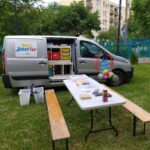
Mobile Play Centre for inclusion and early childhood development and learning
UMGYEB-2024_08 tender (UNICEF and Budapest Social Public Foundation)
Primokiz: Developing a strategy for early childhood governance
"It takes a village to raise a child" is a phrase we hear more and more often in the context of early childhood education and development. And indeed, complex, understanding and accessible support is needed for parents and professionals working with children to support their children's emotional-cognitive-social-physical development in their daily lives. Based on German and Swiss experience, research has shown that our [...]

7000 laptops for refugees fleeing war
HP Inc. is donating 7,000 laptops to children fleeing war aggression and their families, as well as to organisations and educational institutions supporting them. The devices are being donated through the International Step By Step Association by the Business Coalition for Education and TheirWorld, of which HP Inc. is a member.To ensure the proper storage of the laptops, Raben [...]
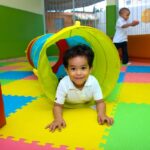
Strengthening and professional support for early childhood professionals
The main aim of the project is to learn innovative methods in early childhood education, to improve cooperation between pre-school teachers and parents, and to facilitate the exchange of experience between the partners involved.

Refugee camp in Fonyód
Under the professional leadership of NestingPlay and a colleague from the Partners Hungary Foundation, the Fonyod refugee camp is running with a total of 86 people - 24 adults and 46 children.

Early childhood matters - environmental action with young children
Children, especially the most disadvantaged, deserve a good start in life, but there are many obstacles. A nurturing environment around young children is the foundation for a healthy, creative and peaceful society, in addition to individual fulfilment, and it is now that support is most needed.
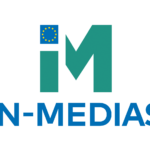
IN MEDIAS programme: European mediation training
Mediation institutions from six EU countries jointly develop a European mediation training course! IN-MEDIAS is an exciting, EU-funded project that brings together existing mediation training providers and strategic partners from across the EU to combine their experience in developing an integrated European mediation training curriculum.
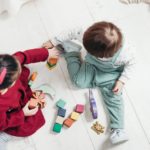
Inclusive nurseries for quality early childhood development
What is the programme about? The Municipality of Józsefváros has launched a complex kindergarten development programme, in which our foundation and the Rosa Parks Foundation have been invited as partners. We submitted a successful application to the European Commission and the consortium was awarded a grant of 267 017 EUR (approximately 97 million HUF), with each of the three organisations contributing 20 % [...]

Early childhood matters - even during an epidemic!
Children, especially the most disadvantaged, deserve a good start in life, but now the COVID-19 pandemic is making that even harder. A nurturing environment around young children is the foundation for a healthy, creative and peaceful society, in addition to individual fulfilment, and now is the time when support is most needed. The Bernar Van Leer Foundation is dedicated to [...]
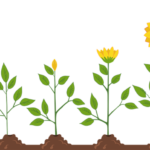
Resilience+: resilient organisations in a shrinking civil society space
Every day, we face new challenges and increasingly uncertain circumstances. This is why, alongside the issue of sustainability, the issue of resilience - the "mental resilience" of an organisation - is becoming increasingly important.

REC: Reflection, Cooperation, Group support
Strengthening collaborative reflective teaching practice among teachers of children aged 0-10
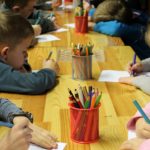
Child-centred Education Development in Maraltő
Since June 2009 we have been working at the Kmety György Evanesian Primary School and Kindergarten in Marcaltő. By introducing and supporting the Step by Step programme, the institution aims to spread a new pedagogical ethos with the child at its heart, based on the principle that "Every human being is a unique and unrepeatable individual".
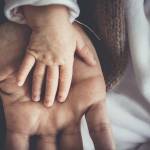
Early childhood matters!
Babies and young children, especially the most disadvantaged, deserve a good start in life. A nurturing environment around young children is the foundation for a healthy, creative and peaceful society, in addition to individual fulfilment.
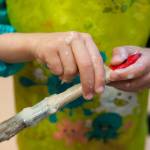
Step by Step education development in Soroksár
Soroksár kindergarten leaders and a team of kindergarten teachers felt that new methods were needed to deal more effectively with conflicts between children, to better communicate with parents, to strengthen cooperation between children, to better accommodate and manage children from different family backgrounds.

Together to improve the public health situation of Roma
In the experience of civil society actors working with poor communities, many social factors determine the health status of people living in poverty.

Preventnet - Prevent the radicalisation of young people!
The main aim of the PreventNet international project is to raise awareness and support professionals in finding effective solutions.
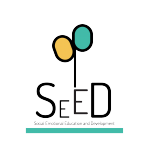
SEED: Social-emotional education and development in preschool
The SEED project aims to improve the psychosocial, also known as emotional-social, well-being and health of pre-school children (aged 2.5 to 6), especially those growing up in difficult circumstances.
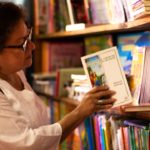
Mothers telling stories in Gyögyöspata
Story reading has both skill-building and relationship-building functions. Through stories it is easier to talk about our own feelings, both as children and as adults. This is why it is important to ensure that children who do not have this habit in their families, because their parents brought them up in very difficult circumstances and no one read them a bedtime story when they were children, also benefit from the positive effects of listening to stories.

Partnership Against School Aggression E+
The ASAP (Against School Aggression Partnership) - a community-based complex school-based programme for effective aggression and conflict management, which ran from August 2015 to August 2018 in 3 Hungarian, 4 Maltese and 1 Bulgarian school, funded by the European Commission's Erasmus+ programme.
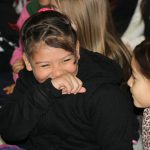
Modern conflict management in kindergarten-school
Early childhood development professionals and parents are already confronted in kindergarten with the fact that abuse and aggression often occur in social situations and need to be addressed. And treatment requires the recognition of the problem and the use of new methods: for children, teachers and parents alike. Currently, in Hungary, these skills are not part of any teacher training.
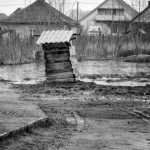
Your old man!
Today, more than half a million people in Hungary do not have one. Our programme builds outdoor toilets through local collaboration and community planning. Statistics only keep track of who doesn't have an indoor toilet, but our experience shows that tens of thousands of families lack outdoor toilets. According to Eurostat data, 523.5 thousand people (including more than 170 thousand children) live in [...]

Non-violence and dialogue: a European network
European Network for Nonviolence and Dialogue Program The aim of the project is to initiate a dialogue between civil society actors on the escalating social value-based conflicts and their possible solutions. The project aims to initiate dialogues and contribute to constructive, non-violent solutions to these conflicts. As a first step, a study will be carried out on value conflicts in each country and the [...]
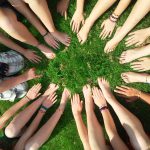
The community matters: working with Roma parents
What is the purpose of the Community Matters programme? To build real cooperation between teachers and parents, who can only work well together if they have common interests and good relationships. What do we do during the project? We organise workshops for teachers and parents to bridge the gap between them, to overcome misunderstandings and negative experiences. One of our favourite [...]

Collaborative learning: a European methodological framework
What is the purpose of Tempus EFFEKT? The project, in partnership with Finland, Latvia, the Czech Republic, the UK, Ireland, Hungary and Latvia, aims to create and test a European methodological framework to help teachers learn from each other's practice. It also aims to help education policy makers to think about systems that embed collaborative learning in professional training. [...]
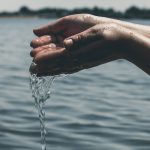
Learning about personal hygiene through play
What is the purpose of the PHASE prgramme? GlaxoSmithKline Pharmaceuticals (GSK) ran a programme called Personal Hygiene & Sanitation Education (PHASE) from 1998-2016 to reduce the number of illnesses caused by sanitation and hygiene problems among children and their families living in poverty. The project uses games to teach children basic hygiene methods, such as handwashing and [...]
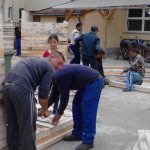
ROMED programme: intercultural mediation
Engaging Roma communities for more liveable communities What is the ROMED programme? Working with Roma communities is a challenge for many mayors. The vast majority of marginalised and segregated communities live in extreme poverty on the fringes of towns and villages. The situation is seen as a problem by most people on all sides because of a lack of trust and accumulated bad experiences; the Roma community [...]
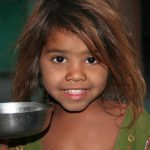
Together for better health with intercultural mediators
Together for better health, for us, with us!
Health promotion in Roma communities in East-Central Europe

Project POWER - Girls in science
Girls in science What is the aim of Project POWER? To raise awareness among students, teachers and parents about the importance of science, with a particular focus on raising girls' interest in science and engineering (STEM) careers, which are still under-represented. The elements of the programme included: developing competences related to engineering and science through innovative tools, [...]



























